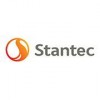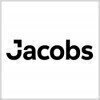Project Controller
20+ Project Controller Interview Questions and Answers

Asked in WSP

Q. What is a baseline in project management, what are its types, and how can it be created in Primavera P6?
A baseline in project management is a reference point for measuring project performance and progress.
Types of baselines include Scope Baseline, Schedule Baseline, and Cost Baseline.
Scope Baseline defines the project's deliverables and work required.
Schedule Baseline outlines the planned start and finish dates for project activities.
Cost Baseline represents the approved budget for the project.
In Primavera P6, a baseline can be created by saving a project as a baseline after in...read more


Q. What is project schedule and which software do you use to create it.
A project schedule is a timeline that outlines the tasks and deadlines for a project. Software used to create it varies.
A project schedule is a roadmap for the project team to follow
It outlines the tasks, deadlines, and dependencies for the project
Software used to create project schedules includes Microsoft Project, Primavera, and Smartsheet
The project schedule should be regularly updated and communicated to stakeholders

Asked in Ray International Llc Oman

Q. What is the procedure to start the project?
The procedure to start a project involves several steps.
Define project scope and objectives
Identify project stakeholders
Develop project plan and schedule
Allocate resources and budget
Establish project team and roles
Obtain necessary approvals and authorizations
Initiate project execution

Asked in WSP

Q. What is a risk register, and what is the difference between an issue and a risk?
A risk register is a tool for documenting risks and issues in a project, helping manage potential problems effectively.
A risk register lists identified risks, their impact, likelihood, and mitigation strategies.
An issue is a current problem that needs resolution, while a risk is a potential future problem.
Example of a risk: 'There is a chance of budget overruns due to unforeseen expenses.'
Example of an issue: 'The project is currently over budget due to unexpected costs.'
The ...read more

Asked in WSP

Q. What is an extension of time, and how did you communicate this with the client?
An extension of time is a formal request to prolong project deadlines due to unforeseen circumstances.
An extension of time is typically requested when delays occur due to factors beyond the contractor's control.
Examples include adverse weather conditions, supply chain disruptions, or changes in project scope.
Communication with the client involves providing detailed documentation of the reasons for the delay.
I would schedule a meeting to discuss the situation, present the evid...read more

Asked in WSP

Q. What is the S curve, and how do you create it in Primavera P6 and Excel?
The S curve is a graphical representation of project progress over time, showing cumulative costs or work completed.
1. Define the project scope and timeline to establish baseline data.
2. In Primavera P6, use the 'Earned Value' feature to track progress.
3. Create a cumulative cost curve by plotting actual vs. planned costs over time.
4. In Excel, use a line chart to visualize cumulative data points for planned and actual progress.
5. Example: If your project has a budget of $100...read more
Project Controller Jobs




Asked in WSP

Q. What is the Spotlight feature, and how does it assist users?
The Spotlight feature enhances user experience by providing focused insights and streamlined navigation within applications.
Offers contextual information based on user actions, improving decision-making.
Facilitates quick access to relevant data, reducing time spent searching.
Can highlight key performance indicators (KPIs) for project tracking.
Example: In project management software, it may spotlight overdue tasks or budget overruns.

Asked in WSP

Q. What are OBS and EPS, and how are they related?
OBS (Organizational Breakdown Structure) and EPS (Enterprise Project Structure) are frameworks for project management organization.
OBS defines the hierarchy of the organization involved in the project, showing roles and responsibilities.
EPS outlines the overall structure of projects within an organization, including all projects and their relationships.
Example of OBS: A project team may include a project manager, engineers, and support staff, each with defined roles.
Example o...read more
Share interview questions and help millions of jobseekers 🌟


Asked in Capacit'e Infraprojects

Q. What are the differences between typical and non-typical floors?
Typical floors are standard floors found in most buildings, while non-typical floors are unique or specialized floors.
Typical floors are commonly found in residential and commercial buildings, with standard layouts and designs.
Non-typical floors may include features such as mezzanine levels, atriums, or specialized spaces like auditoriums or laboratories.
Non-typical floors often require custom design and construction to meet specific requirements or functions.
Examples of non-...read more

Asked in Stantec

Q. What are earned value metrics? Draw S curve and cashflows.
Earned value metrics are project management tools used to measure project performance and progress.
Earned Value (EV): The budgeted cost of work performed.
Planned Value (PV): The budgeted cost of work scheduled.
Actual Cost (AC): The actual cost incurred for the work performed.
Cost Variance (CV): The difference between EV and AC.
Schedule Variance (SV): The difference between EV and PV.
S-Curve: Graphical representation of planned value, earned value, and actual cost over time.
Ca...read more

Asked in Khatib & Alami

Q. Do you know any software related to Project Management?
Yes, there are several software related to PM such as Microsoft Project, Primavera P6, and Asana.
Microsoft Project is a popular project management software used for planning, scheduling, and tracking projects.
Primavera P6 is another project management software used for managing large-scale, highly sophisticated and multifaceted projects.
Asana is a cloud-based project management tool that helps teams to manage, track, and organize their work.

Asked in Buoyancy Consultants

Q. How will you update the client on a regular basis?
I will update clients through regular progress reports, meetings, emails, and phone calls.
Provide regular progress reports detailing project status and milestones
Schedule regular meetings to discuss project updates and address any concerns
Send frequent emails with updates on project progress and next steps
Communicate via phone calls to provide immediate updates or address urgent issues

Asked in Stantec

Q. What are the different activity types in P6?
Different activity types in P6 include Task, Milestone, Hammock, Level of Effort, and WBS Summary.
Task - Represents a specific work item with a duration and resources assigned
Milestone - Represents a significant event or achievement with zero duration
Hammock - Represents a summary task that spans multiple activities
Level of Effort - Represents work that is not tied to a specific duration or quantity
WBS Summary - Represents a summary of activities within a specific Work Breakd...read more

Asked in Ray International Llc Oman

Q. What is a critical path?
Critical path is the longest sequence of activities in a project plan that must be completed on time to ensure project completion within the deadline.
It determines the shortest possible duration of a project.
It identifies the activities that cannot be delayed without delaying the entire project.
It helps in prioritizing tasks and allocating resources.
It is represented by a network diagram and a Gantt chart.
Examples include construction projects, software development, and event...read more

Asked in Gleneagles Global Hospital

Q. What is Data management?
Data management is the process of organizing, storing, protecting, and maintaining data throughout its lifecycle.
It involves creating policies and procedures for data usage
It includes data backup and recovery
It ensures data security and privacy
It involves data analysis and reporting
Examples include database management, data warehousing, and data governance

Q. How do you perform resource leveling?
Resource levelling is the process of adjusting project schedules to ensure that resources are allocated efficiently.
Identify all tasks and their resource requirements
Determine the availability of resources
Adjust task schedules to avoid resource overallocation
Consider shifting tasks, adding resources, or extending deadlines if necessary
Use project management software to help automate the process
Asked in Jagruti Technical Services

Q. What is the difference between control wiring and power wiring?
Control wiring and power wiring are different in terms of their purpose and the type of electrical components they connect.
Control wiring is used to connect control devices such as switches, relays, and sensors to control panels or systems.
Power wiring is used to connect power sources, such as electrical panels or generators, to electrical loads.
Control wiring carries low voltage signals, typically in the range of 24V or lower, while power wiring carries high voltage electric...read more

Asked in Ray International Llc Oman

Q. What is a milestone?
A milestone is a significant event or achievement in a project that marks progress towards completion.
Milestones are used to track progress and ensure that a project is on schedule.
They are often associated with specific dates or deadlines.
Examples of milestones include completing a major deliverable, reaching a certain stage of development, or obtaining funding.
Milestones can also be used to communicate progress to stakeholders and team members.

Asked in L&T Technology Services

Q. What is EPM?
EPM stands for Enterprise Performance Management.
EPM is a set of processes and tools used by organizations to manage and improve their performance.
It involves the collection, analysis, and reporting of data to support decision-making and strategic planning.
EPM encompasses various areas such as financial planning and budgeting, forecasting, risk management, and performance measurement.
It helps organizations align their goals and objectives with their financial and operational ...read more

Asked in WSP

Q. What is a network diagram?
A network diagram visually represents project tasks, their dependencies, and the sequence of activities.
Illustrates the flow of tasks in a project.
Helps identify critical paths and dependencies.
Common types include PERT and CPM diagrams.
Example: A construction project showing tasks like design, permits, and building phases.

Q. What is a mapping sheet?
A mapping sheet is a document that outlines the relationship between different elements or variables in a project.
It helps in understanding how different components of a project are interconnected.
It can include tables, diagrams, or charts to visually represent the relationships.
Mapping sheets are commonly used in project management to ensure clarity and consistency in project planning and execution.

Asked in WSP

Q. Do you have PowerBI expertise?
Yes, I have expertise in PowerBI.
Proficient in creating interactive reports and dashboards using PowerBI
Experience in data visualization and analysis
Skilled in connecting to various data sources and transforming data for reporting
Familiar with DAX formulas for advanced calculations
Certified in PowerBI is a plus

Asked in PM Group

Q. Concepts used in project controls
Concepts used in project controls include budgeting, scheduling, risk management, and performance measurement.
Budgeting: Creating and managing the project budget to ensure financial goals are met.
Scheduling: Developing timelines and milestones to track progress and ensure timely completion.
Risk Management: Identifying and mitigating potential risks that could impact the project.
Performance Measurement: Monitoring and evaluating project performance against set objectives.

Asked in L&T Technology Services

Q. What is Geo-Data management?
Geo-data management involves collecting, storing, analyzing, and utilizing geographic data for various purposes.
It includes managing data related to location, coordinates, maps, and spatial information.
Geo-data management is used in various industries such as urban planning, transportation, agriculture, and environmental management.
Examples of geo-data management tools include Geographic Information Systems (GIS), remote sensing, and Global Positioning Systems (GPS).

Asked in Stantec

Q. All aspects of Planning
Planning in project control involves creating schedules, setting milestones, allocating resources, and monitoring progress.
Developing detailed project schedules
Setting milestones and deadlines
Allocating resources effectively
Monitoring progress and adjusting plans as needed
Asked in Jagruti Technical Services

Q. Types of PLC and FullForm PLC
PLC stands for Programmable Logic Controller. It is a type of computerized control system used in industrial automation.
PLC is used to control and monitor machinery and processes in industries.
There are different types of PLCs such as modular PLCs, rack-mounted PLCs, and compact PLCs.
Some popular PLC brands include Siemens, Allen-Bradley, and Mitsubishi.
PLCs are programmed using ladder logic or other programming languages.
PLCs are commonly used in manufacturing, oil and gas, ...read more
Asked in Jagruti Technical Services

Q. What is the difference between MCB and RCCB?
MCB and RCCB are both electrical devices used for circuit protection, but they differ in their functionality and applications.
MCB stands for Miniature Circuit Breaker, while RCCB stands for Residual Current Circuit Breaker.
MCBs are designed to protect against overcurrents and short circuits, while RCCBs are used to protect against electrical leakage or residual currents.
MCBs are commonly used in residential and commercial buildings to protect individual circuits, while RCCBs ...read more

Asked in Deloitte

Q. Define DSO and WC
DSO stands for Days Sales Outstanding, which measures the average number of days it takes for a company to collect payment after a sale. WC stands for Working Capital, which is a measure of a company's operational efficiency and short-term financial health.
DSO measures how efficiently a company is managing its accounts receivable. Lower DSO indicates faster collection of payments.
WC is calculated by subtracting current liabilities from current assets. Positive WC indicates th...read more
Interview Questions of Similar Designations
Interview Experiences of Popular Companies






Calculate your in-hand salary
Confused about how your in-hand salary is calculated? Enter your annual salary (CTC) and get your in-hand salary


Reviews
Interviews
Salaries
Users










